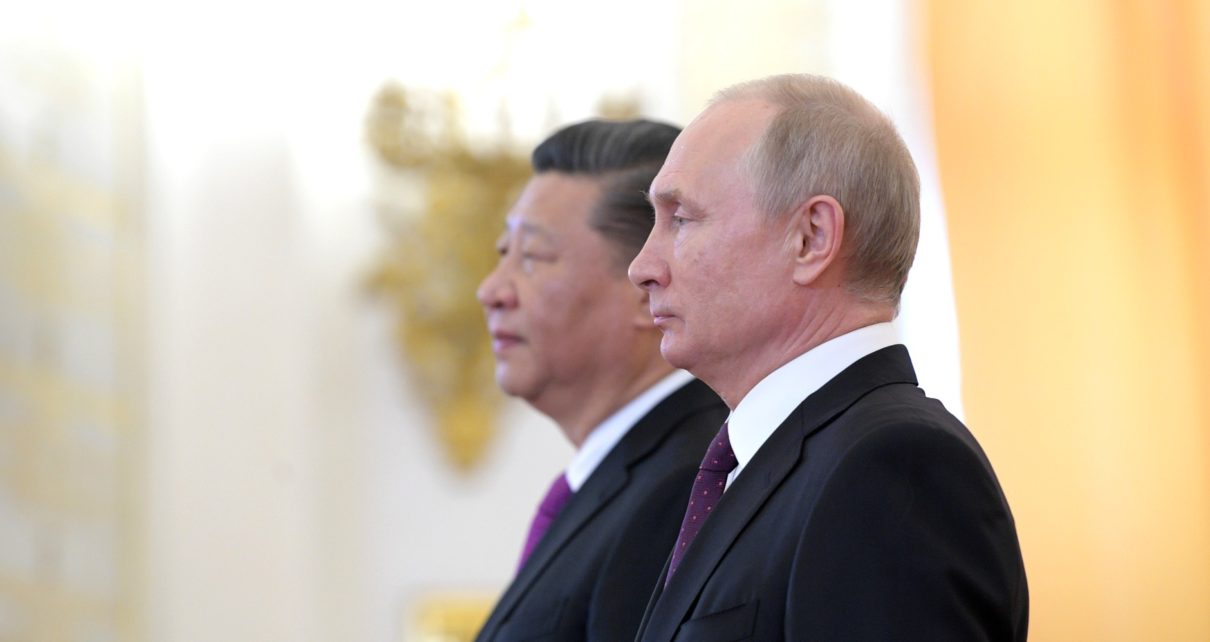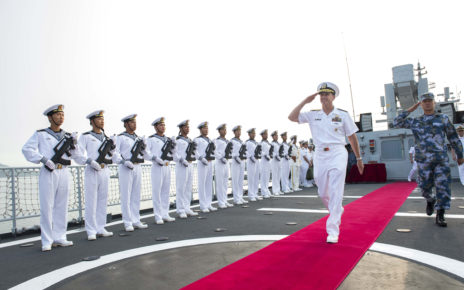Prior to February 24, 2022, it appeared to many observers that the primary challenge to the international rules-based order resided in Beijing rather than Moscow. With China’s military force modernization efforts beginning to come to fruition, its attitude towards the status quo has become increasingly adversarial, captured by the term “Wolf Warrior Diplomacy.” This has raised alarm among international observers, such as Graham Allison. However, over the past several months, Russia’s invasion of Ukraine and its resulting disinformation campaigns have once more become a topic of intense scrutiny within Western capitals. Moreover, the war has also highlighted the differences between Russia and China’s styles of information warfare, offering a reflection of each state’s strategic aims.
Russia’s disinformation campaigns regarding Ukraine are primarily designed to poison the information space by consistently spreading patently false narratives through social media. These efforts have centred around an ever-shifting series of narratives designed to justify its intervention. These include appeals to a pseudo-historic past of a greater Russian Empire and the Great Patriotic War, Putin’s preferred term for the Second World War, and a supposedly ongoing genocide being carried out by Ukraine within the Donbas region. Further, Russia has also claimed that Ukraine, in concert with the US, has developed biological weapons with the aim of deploying them on the battlefield. This narrative, which has become particularly entrenched within the information space due to its repetition by Chinese media, highlights Russian disinformation’s focus on the tactical, or situational level, by potentially offering justification for its own use of biological agents on the battlefield. It is this focus on the tactical level that also differentiates Russia’s disinformation strategy from China’s more strategically minded, long-term approach under its policy of “Wolf Warrior Diplomacy.”
Against the backdrop of the Russo-Ukrainian conflict, China has also continued to pursue disinformation campaigns designed to further its strategic ends. Along with the People’s Liberation Army’s process of modernization to achieve near-peer status vis-à-vis the US, China has also invested in public diplomacy to bolster its image abroad and ultimately challenge the rules-based international order.
Though Russia’s disinformation campaigns have become a more pressing concern due to contemporary events such as the war in Ukraine, China’s reliance on disinformation operations, such as stoking uncertainty around the origins of the COVID-19 pandemic and racial resentments within the US, has paralleled its embrace of “Wolf Warrior Diplomacy” and its rising status as a superpower.
Coined after the release of a popular Chinese action film similar to the “Rambo” series, “Wolf Warrior Diplomacy” refers to China’s strategy of using threats, insults, and other provocations in the course of normal diplomatic relations, particularly with the West. This practice was particularly notable during the Trump administration, which featured both fractious trade disputes and the initial stages of the pandemic, along with the US’ growing concern over great power competition. China routinely blamed the US for obscuring the coronavirus’s origins, with Chinese spokesperson Lijian Zhao accusing the US of covering up a biological spill-over event at Fort Detrick, the US military’s primary biological defence facility. This concerted campaign, combined with the US’ poor handling of the pandemic, highlights China’s strategic use of disinformation to present itself as an alternative to the leadership of the United States.
While the second phase of Russia’s invasion of Ukraine will continue over the coming months, as will China’s bid for regional hegemony within the Indo-Pacific, it has become increasingly clear that each state uses disinformation differently in pursuit of their strategic objectives. For Russia, an albeit strong, but weakening power as its economy has declined, disinformation has become a veil behind which it may utilize its hard power assets to secure its near abroad. Throughout the war, the Russian government has appeared to be more concerned with securing its own popular legitimacy through bolstering its internal messaging and repressing dissent rather than justifying its invasion to the international community. Further, many of Russia’s narratives have centred around the tactical rather than strategic level, highlighting its desire to secure an advantage on the battlefield and sow chaos within the rules-based international order rather than explicitly replace its leadership with a contrasting model of global governance.
In contrast, China’s use of disinformation appears to be primarily focused on cementing a new form of public diplomacy specifically designed to counter the implicit global leadership of the United States. Commensurate with its growing hard power capabilities, China’s “Wolf Warrior’” strategy aligns with Chinese president Xi Jinping’s desire for his country to conduct “major country diplomacy with Chinese characteristics.” In this light, Chinese disinformation campaigns are designed to serve grander strategic ambitions through influencing global public opinion to capitalize on latent anti-Americanism with the aim of constructing an alternative to perceived Western hegemony. While China is also interested in force projection as evidenced by the PLA’s increasing strength and its use of disinformation to further undermine Taiwanese independence and weaken internal and external dissent, its aim is to be recognized as a great power rather than utilizing a “firehose of falsehoods” to obfuscate its decline.Whether “Wolf Warrior Diplomacy” is merely a strategy designed to exploit Twitter as a communication medium for public diplomacy or a sign of China’s increasing dissatisfaction with the international status quo, its emergence, along with the development and deployment of hard power capabilities, is notable. Rather than Russia’s use of disinformation to hide a steel fist in a velvet glove on the frontlines of combat through “flooding the zone,” “Wolf Warrior Diplomacy” and its contrast with China’s previous diplomatic strategy of moderation may be recognized as a technique to seize the strategic initiative as it reaches near-peer status with the US. As demonstrated by both countries, from strategic competition to combat, the first casualty of war is always the truth.
Image copyright: “Vladimir Putin and Xi Jinping (2019-06-05) 05.jpg” by The Presidential Press and Information Office via WordPress. Licensed under CC BY 4.0.
Disclaimer: Any views or opinions expressed in articles are solely those of the authors and do not necessarily represent the views of the NATO Association of Canada.




